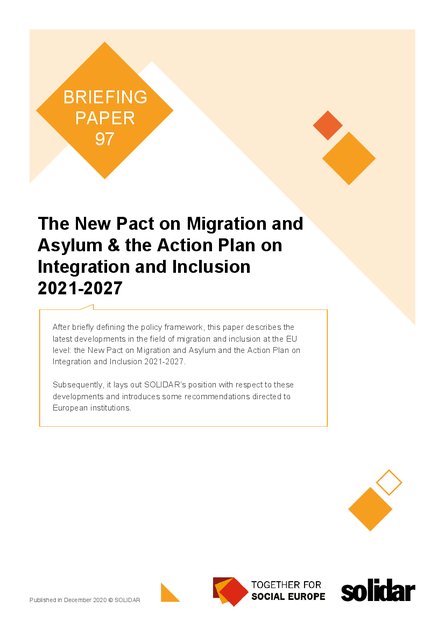
Migration policy has been at the centre of the political debate within and outside the European Union in recent years. It has been used as a rallying call for nationalists and right-wing movements, parties and governments, has threatened the integrity of the EU and put the solidarity among member states to the test. In the meantime, migrants are caught in the cross fire. During the peak of migration flows to the EU in 2015 the massive shortcomings and deep loopholes of the migration management system were exposed in the most tragic way. These deficiencies remain and have in many ways deepened since. The inhumane conditions of migrants in camps within and at the doorstep of the Union and the continued deadly traffic on the Mediterranean are evident examples of this. More recently, the COVID-19 pandemic rendered migrants’ conditions even more critical, especially for those in detention.
If migrants manage to enter the EU, they face huge challenges, of inclusion, acceptance, and access to rights. In terms of education, employment and access to essential services they are well behind EU citizens. This situation of structural inequality affects migrants first and foremost, but it also hampers the functioning of our economies and societies contributing to increased tensions, misuse of human capital, missed development opportunities, and fiscal gains.
The migration policy and the inclusion policy of the EU are two sides of the same coin, they need to complement and support each other to effectively fulfill their function. In this paper the frameworks of the two policy areas will be briefly introduced. Subsequently, the most recent developments at the EU level will be presented: the New Pact on Migration and Asylum and the Action Plan on Integration and Inclusion 2021-2027. To conclude, SOLIDAR’s stance will be laid out.
